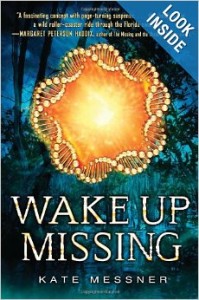 I was deeply disappointed by this long, engaging, insidious apologia for assisted suicide, or “mercy killing” as the euphemism goes. I saw this title on so very many end-of-the-year favorites lists, and I thought it sounded engaging. It was. The characters were appealing, and Louisa Clark’s project to make her quadriplegic “patient”, Will Traynor, take an interest in life, kept me turning the pages to see what would happen.
I was deeply disappointed by this long, engaging, insidious apologia for assisted suicide, or “mercy killing” as the euphemism goes. I saw this title on so very many end-of-the-year favorites lists, and I thought it sounded engaging. It was. The characters were appealing, and Louisa Clark’s project to make her quadriplegic “patient”, Will Traynor, take an interest in life, kept me turning the pages to see what would happen.
I didn’t want easy answers. I know people who live in chronic pain, and I know people who deal with severe disability every day of their lives. It’s not easy, and their problems should not be trivialized by an unearned and unexamined happily-ever-after ending to a novel. However, (SPOILER: I’m not at all reluctant to write spoilers for a novel that engages in blatant propaganda), the ending to this novel trivializes life itself, and its ending makes the lives of disabled people and people who are in pain seem cheap and worthless.
Serendipitously, I saw a tweet today that connected me to this blog post quoting Marilyn Golden, Senior Policy Analyst with the Disability Rights Education and Defense Fund, at a disability rights group blog called Not Dead Yet. These are some reasons she gives to be concerned about laws being proposed in in such far-flung places as Scotland, New Hampshire, and New Mexico—and about the legalization of assisted suicide that is already in effect in Washington state and in Oregon:
Deadly mix: Assisted suicide is a deadly mix with our profit-driven healthcare system. At $300, assisted suicide will be the cheapest treatment. Assisted suicide saves insurance companies money—even with full implementation of the greatly-needed Affordable Care Act (“Obamacareâ€).
Abuse: Abuse of people with disabilities, and elder abuse, are rising. Not every family is a supportive family! Where assisted suicide is legal, such as in Oregon, an heir or abusive caregiver may steer someone towards assisted suicide, witness the request, pick up the lethal dose, and even give the drug—no witnesses are required at the death, so who would know?
Mistakes: Diagnoses of terminal illness are too often wrong, leading people to give up on treatment and lose good years of their lives, where assisted suicide is legal.
Careless: Where assisted suicide is legal, no psychological evaluation is required or even recommended. People with a history of depression and suicide attempts have received the lethal drugs.
Burden: Financial and emotional pressures can also make people choose death.
Unnecessary: Everyone already has the legal right to refuse treatment and get full palliative care, including, if dying in pain, pain-relieving palliative sedation.
No true safeguards: Where assisted suicide is legal, the safeguards are hollow, with no enforcement or investigation authority.
Our quality of life underrated: Society often underrates people with disabilities’ quality of life. Will doctors & nurses fully explore our concerns and fight for our full lives? Will we get suicide prevention or suicide assistance?
Of course, in Me Before You, all of the family are motivated by pure concern for the quadriplegic Will. Will himself makes a completely autonomous and carefully considered decision to kill himself, and no one is allowed to really argue that he is in no condition to make such a decision. One character, Will’s caregiver’s mother, is outspoken and unshaken in her opposition to “mercy killing”, but she is a peripheral character and the only one who is not finally recruited and convinced by Will’s suffering and his determination to support him in his decision to end his life.
A book that showed both (or many) sides of this issue, even if it ended in the same way, would have been worth reading. As it is, Ms. Moyes has used her admittedly fine writing talent to propagandize for death, and I think it’s a pity.
Not recommended.
